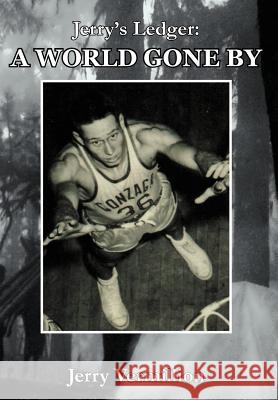Jerry's Ledger: A World Gone by » książka
Jerry's Ledger: A World Gone by
ISBN-13: 9781463445942 / Angielski / Twarda / 2012 / 264 str.
Jerry's Ledger: A World Gone by
ISBN-13: 9781463445942 / Angielski / Twarda / 2012 / 264 str.
(netto: 91,71 VAT: 5%)
Najniższa cena z 30 dni: 94,98
ok. 16-18 dni roboczych.
Darmowa dostawa!
Jerry was recruited by Gonzaga University during the summer of 1951. His thirty-year run as a basketball player, coach, and diversified educator in Washington State began in September of that year. The new coach, Hank Anderson, led the team on a long march to becoming the great nationally recognized basketball program that exists at Gonzaga University today. Jerry's memoirs show his enormous appreciation for Gonzaga University and his pride in being a part of that beginning greatness. Jerry started as a freshman on the first Anderson team. During four years of competition, he amassed an incredible 1,670 rebounds. Sixty years later, that record still stands Unbelievably, the next-closest player is 760 behind. This is a record that might never be broken He is still in the top ten in scoring and a member of the over-forty-point club. At one time, he held all the scoring records. His standing jump was 11'1''. For those who don't know, that's 13 inches above the rim. At 6'4'', he jumped center for Gonzaga in over one hundred games and controlled 90 percent of them The many great players who came later, including John Stockton and Frank Burgess, chipped away at his early records. Describing the why, when, where, and how of his life's chronicle fulfills a family need. Additionally, the players, students, and professionals Jerry met along his journey will be pleased to know more about his voyage. During an evening visit to his son-in-law's home, Jerry discovered an inspirational force that set in motion an autobiographical explication dedicated to his family. Todd Harrison, Jerry's son-in-law, showed him a brief composition written by Todd's grandfather that described his life and the settling of a Mormon family in early Utah. The manuscript is cherished by Todd and his family because it recounts the hardships, experiences, and successes of their ancestor. It became obvious to Jerry that such a composition would be an ideal way to share parts of his boyhood and professional life more intimately with family. For whatever reasons, Jerry felt that he had not been able to fully share his life experiences with his family. He has stated, "I just didn't talk much to the kids about other experiences in my life while they were growing up." When Jerry began composing this book, the missed stories flowed effortlessly from his memory. In this text, he recounts personal stories about the conflicts, hardships, and successes he experienced while growing up and describes how he overcame a lifelong debilitating handicap. With sincerity and subtle humor, he recounts boyhood lessons learned and the gripping stories of peers known, players coached, professionals met, and experiences lived.











